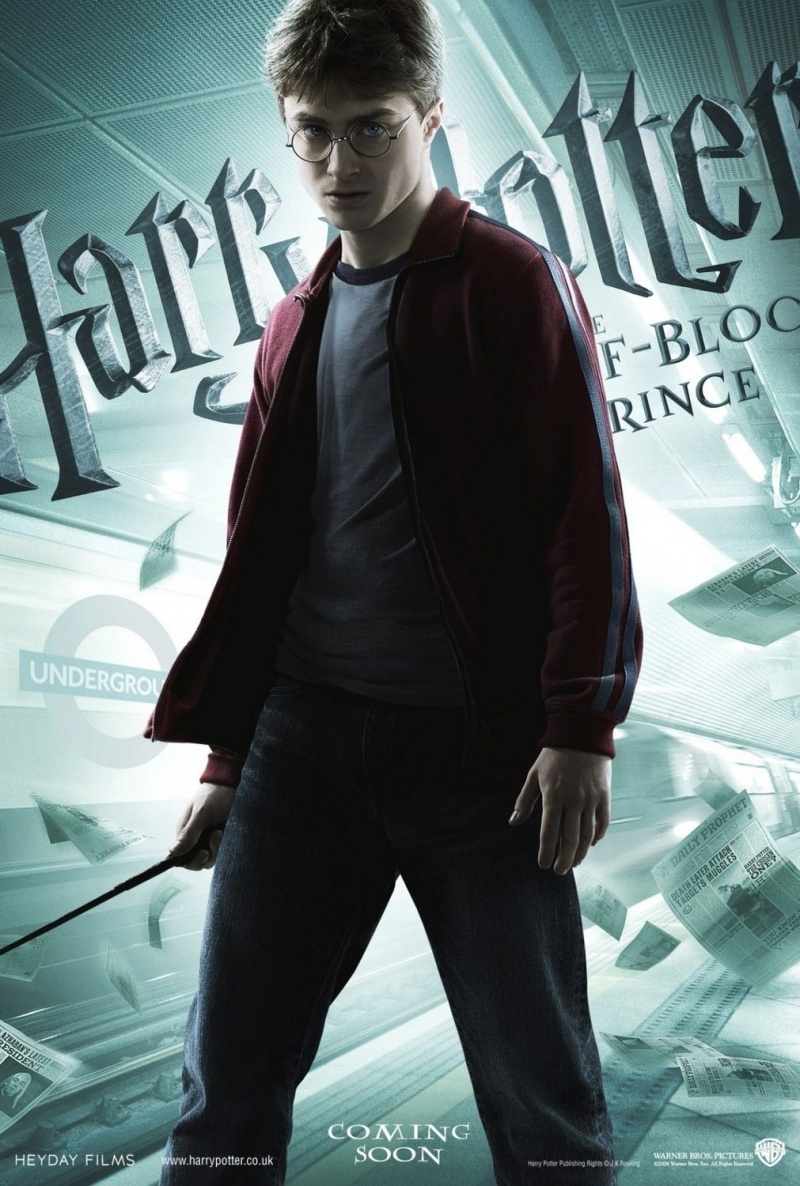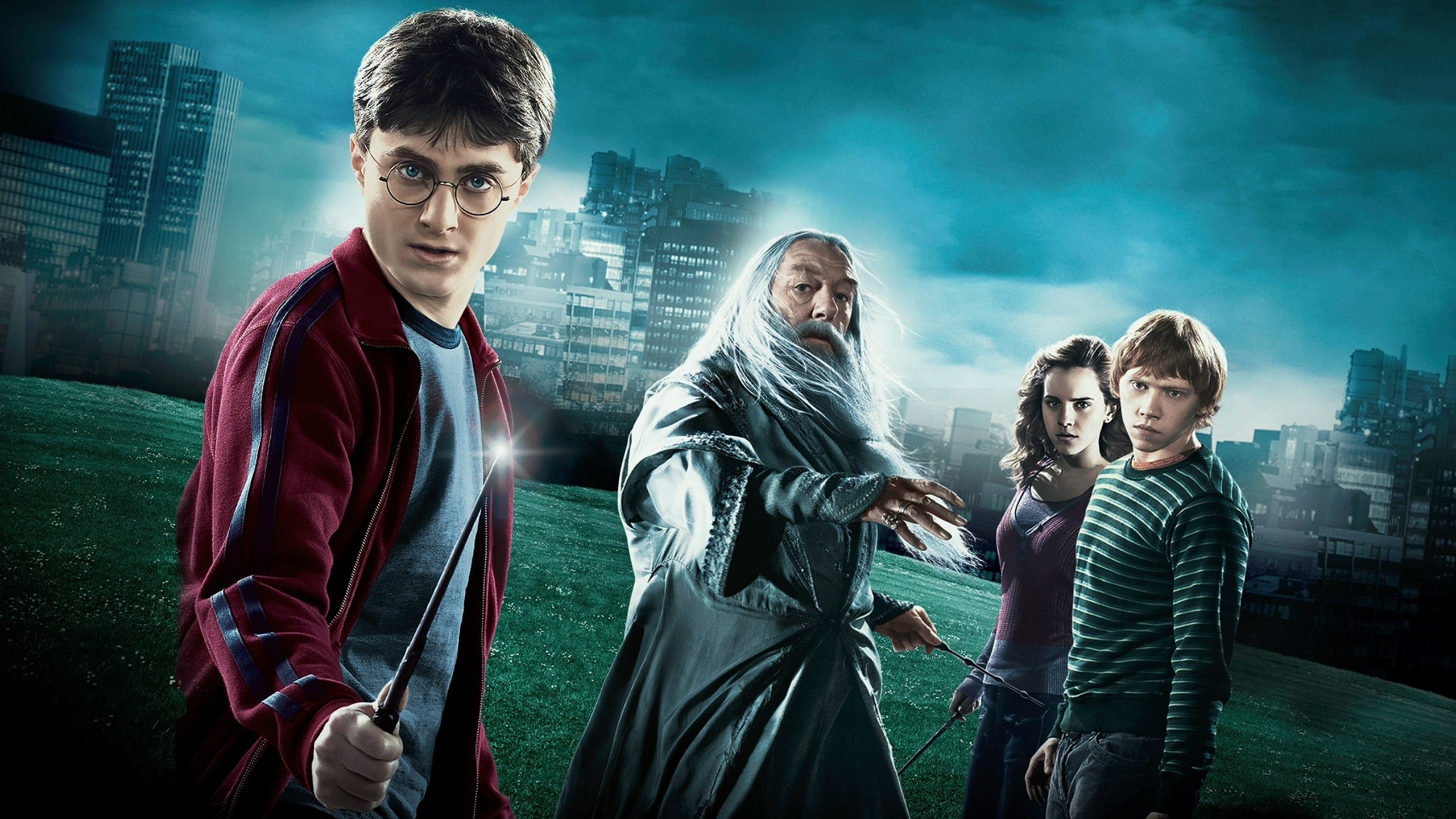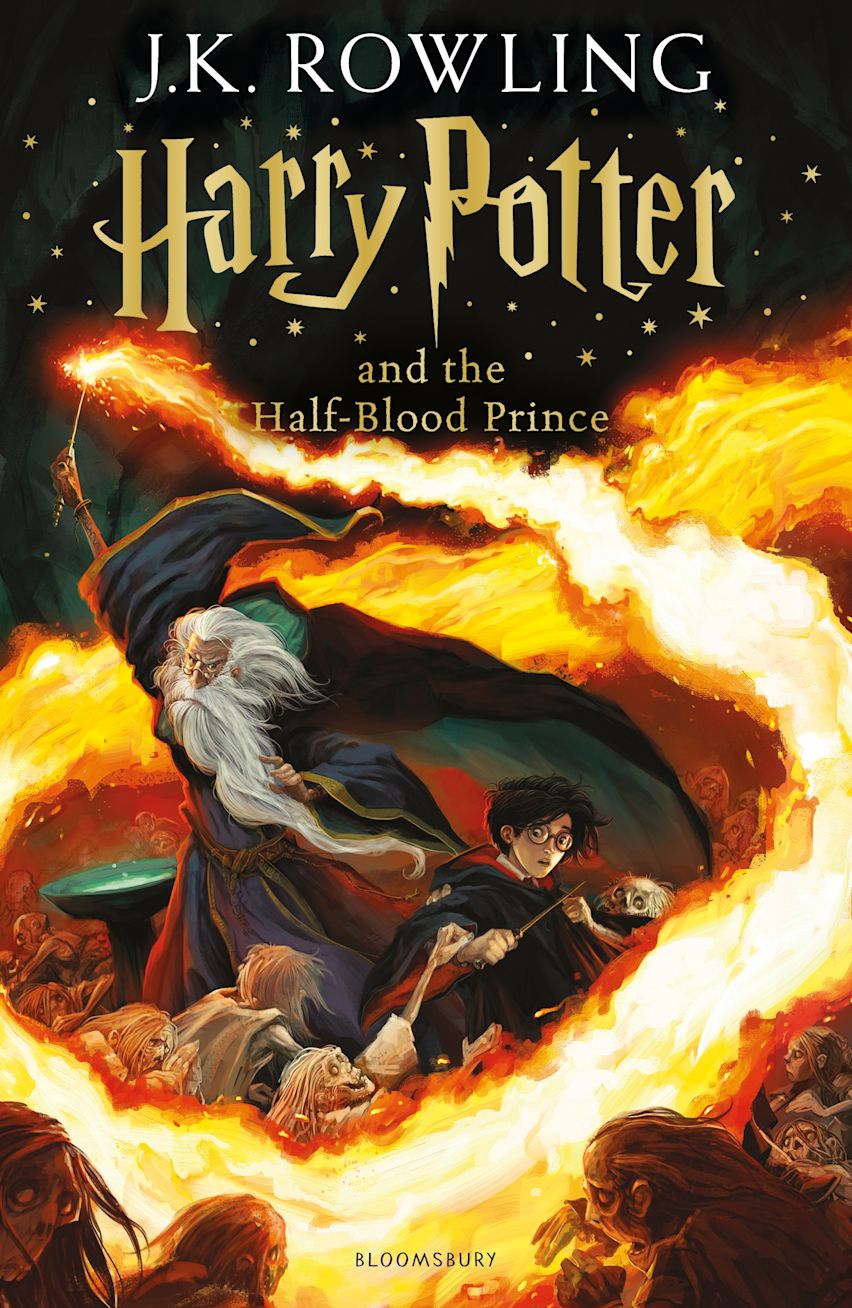How old was Harry Potter during the events of "Harry Potter and the Half-Blood Prince"? Understanding Harry's age is key to grasping the narrative's complexities and the significant shifts he experiences.
The query, "How old is Harry Potter in the Half-Blood Prince?", often yields search results that are frustrated. However, the answer is crucial to understanding the emotional and plot development of the book. The sixth installment of the series finds Harry Potter in his sixth year at Hogwarts School of Witchcraft and Wizardry. He turns sixteen a few weeks before the school year begins. The story, therefore, explores the complexities of adolescence amidst the backdrop of escalating danger and Voldemort's increasing power.
Harry's age is a critical factor in the narrative, driving the emotional and plot developments. In the "Half-Blood Prince," he grapples with complex romantic feelings, the emotional toll of his past, and the growing burden of his destiny. The fact that he is 16 allows the reader to connect with the narrative more personally, recognizing the challenges of this period of life, such as navigating relationships, dealing with responsibility, and questioning identity. The story's setting during Harry's teenage years provides an authentic depiction of the challenges he deals with throughout the series.
- Jonas Brothers Age Career More You Need To Know
- Eminem Kim Relationship Timeline Divorce Are They Friends Now
The books, particularly "Harry Potter and the Deathly Hallows," give a clear indication of Harry's age. At the onset of "Deathly Hallows, Part 1," Harry and his friends are 17 years old, finally reaching adulthood. This transition is important since it signifies the end of their schooling and the beginning of the war with Voldemort. The characters' maturity in the movies is fascinating, but their ages in the books provide a more comprehensive depiction of the struggles faced by teens during this period. The books six and seven present a dramatic shift in the narrative, with Harry's coming of age, allowing the stories to be a great success in the books.
In the "Harry Potter" series, the author J.K. Rowling revealed the birthdays of many characters, including Harry Potter himself. Harry and Rowling have the same birthday, July 31. The details regarding the characters' birthdays give the readers a chance to get closer with them. By knowing the characters' ages, the readers can relate to their emotions and decisions made in the book.
The book series provides a unique online experience built around the "Harry Potter" books. This also features information on Harry's age and the ages of the other characters. Harry's age is one of the many details the writer has given fans, making the universe more detailed. "Harry Potter and the Half-Blood Prince" and the other books in the series are very well-known, due to the great number of readers. The impact and influence of the book have had a huge impact on the audience.
- Dry Humor Definition Examples How To Get It Right
- Claudia Heffner Peltz Age Family More Everything You Need To Know
The book marked a turning point in the series for fans. Rowling shifted her writing toward revealing the answers to all the many mysteries she had built up over the earlier five books. For the devoted readers, this book was a great success and made them feel invested in the characters and their world.
The film adaptations, starring Daniel Radcliffe, Michael Gambon, Dave Legeno, and Elarica Johnson, further brought the characters to life. These movies have done well due to the attention to detail of the books and the characters. The movies bring the audience closer to the characters and connect more.
In "Harry Potter and the Half-Blood Prince," Harry's age is a key component. He's not just a character; he's a teen at a very complex stage in his life. As he turns sixteen, the stakes get higher, and his journey toward adulthood begins in the face of dark times.
| Attribute | Details |
|---|---|
| Character Name | Harry James Potter |
| Age in "Half-Blood Prince" | 16 years old |
| Birthday | July 31, 1980 (same as J.K. Rowling) |
| School | Hogwarts School of Witchcraft and Wizardry |
| House | Gryffindor |
| Significant Relationships | Ron Weasley, Hermione Granger, Albus Dumbledore, Sirius Black, Lily Potter (mother), James Potter (father) |
| Known For | Being "The Boy Who Lived," defeating Lord Voldemort, mastering Defence Against the Dark Arts, Quidditch prowess |
| Role in "Half-Blood Prince" | Discovering the identity of the Half-Blood Prince, learning about Voldemort's past, preparing for the final battle |
| Main Conflicts | Battling Voldemort and his followers, grappling with identity and destiny, navigating relationships |
| Significant Events in "Half-Blood Prince" | Dumbledore's death, discovery of Horcruxes, growing knowledge of Voldemort's past. |
| Reference Website | Wizarding World |
In "Harry Potter and the Half-Blood Prince," a pivotal moment emerges when Harry discovers a mysterious textbook filled with handwritten notes and spells. This book, later revealed to have belonged to the "Half-Blood Prince," significantly influences Harry's abilities in Potions and, by extension, his entire magical journey.
The question of whether Harry should use this book is central to the plot. While the notations offer shortcuts and advanced techniques, Hermione Granger, ever the voice of caution and proper procedure, vehemently opposes Harry's use of the book. She believes that following the instructions, which may not have come from an approved source, could have serious consequences.
Hermione's opposition stems from several concerns. Firstly, she believes the book's methods could be unreliable and potentially dangerous. She is committed to learning magic correctly, through proper study and adherence to the rules. Moreover, Hermione is suspicious of any shortcuts, understanding that true mastery comes from dedication and thorough understanding. She also worries about the Half-Blood Prince's identity and the reasons why the individual chose to write the notes in the first place, concerned that the book is not to be trusted. Her caution reflects her character, demonstrating her dedication to knowledge, safety, and order. She is the voice of reason, constantly pushing Harry to think about the long-term implications.
The narrative of "Harry Potter and the Half-Blood Prince" presents both sides of the debate. Harry's use of the book does offer him an advantage, enabling him to excel in his Potions class and achieve recognition from Professor Slughorn. However, the books influence also leads to unexpected outcomes, some of which are dangerous, underscoring the need for careful decision-making and awareness of potential consequences.
The narrative also underlines how important it is to think critically about the information we receive. The Half-Blood Prince's book, initially a source of great help, slowly reveals its more intricate impact on Harry's actions. This book acts as a symbolic device, displaying how important it is to think critically about the information one obtains. The book's existence leads to both success and tragedy, representing a complex balance of gains and losses. This aspect of the story makes it a timeless exploration of choice and consequence, fitting for readers of all ages.
In the end, the Half-Blood Prince book serves as a powerful symbol within the larger narrative of Harry Potter. It reveals the complex character of those that Harry is against, showing that everyone has a past and a unique viewpoint. Rowling's work urges us to consider our own principles and choices. Harry's time at Hogwarts, from "Harry Potter and the Chamber of Secrets" to "Harry Potter and the Deathly Hallows," brings many lessons. It also shows that the search for knowledge must be balanced with thoughtfulness and understanding.


